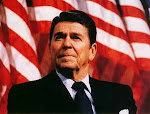We can learn a lot about people by the words they use. In the Democratic presidential debate that took place on January 5, the word “change” was uttered 65 times by the candidates and moderator.
They touted their experience in “making change”, how they “delivered change”, that they represented “significant change” and would bring “real change”. At one point Senator Hillary Clinton said that for 35 years she has been an “Agent of CHANGE” (caps mine) (a turn of phrase that conjures disturbing images of the former First Lady tooling around in a classic Aston Martin, while unleashing all manner of clever gadgets at all the nefarious enemies of CHANGE before announcing they’d been brought low by “Clinton, Hillary Clinton”).
From all this one idea shines through, brightly: this “change” thing is hot stuff. Obviously everybody wants it, wants a lot of it and wants it now. But I wonder…is change, in and of itself, necessarily good?
Since the past is frequently instructive in answering such questions I decided to revisit the outcomes of situations where “the people” demanded change and got it. Following is a very abbreviated history of political change:
· In 1917 the Russian people, dissatisfied with their chronic poverty, food shortages and out-of-touch autocracy, overthrew it and brought into existence the Soviet Union. This certainly was change writ large. This change was then followed by seventy-plus years of political repression (including the forced starvation of ten million Ukrainians), economic stagnation and a Cold War that for forty years threatened to lead to nuclear incineration for all of humanity.
· In 1933 with Germany reeling economically, socially and politically after its defeat in WWI and the punitive terms of the Treaty of Versailles under which it was forced to exist, change was obviously needed and Adolph Hitler became chancellor promising to deliver it. This change was then followed by WWII, the Holocaust and the deaths of twenty-plus millions of people.
· In 1976, the American people, angry at President Gerald Ford for pardoning the corrupt Richard Nixon voted for change and elected Jimmy Carter. This change led to gas shortages, a 12% rate of inflation, a 7.5% unemployment rate, a hostage crisis and the triumph of Islamic radicalism in Iran.
Of course political change also led (in no particular order) to the election of Ronald Reagan, American economic and spiritual renewal, the collapse of the aforementioned Soviet Union and American Revolution. So it would seem that the history of political “change” is a checkered one indeed and that “change” is positive only insofar as the kind of change that is being brought.
While apparently trying to turn “change” into some sort of mystical mantra the recitation alone of which shows their worthiness, the Democratic candidates haven’t totally ignored why they feel change is needed and the type of change they plan to bring. Senator Barak Obama has said and the others agree that Americans have lost their trust and confidence in government. Of course believing this to be true it is somewhat odd that the Democratic party-line on this is that the answer to it is more government. All the Democratic candidates are throbbing in anticipation of having the federal government take over health care, take more of our money in new taxes and basically do more of what they believe the American people feel the government doesn’t do very well in the first place. Hillary Clinton has made it known that she has more ideas for government than we “can afford”, a much more honest and bold admission than can be found in the Pavlovian chanting of “Change!” in response to every question.
After understanding the uselessness of the bald notion of “change” maybe it would be better if, every time a politician tries to hypnotize us into thinking the future will be rosy because they’ve got “change” in their hip pockets we asked them how much the bill will be instead. After all, there could well be a big cost for the change they plan to give us in return.
They touted their experience in “making change”, how they “delivered change”, that they represented “significant change” and would bring “real change”. At one point Senator Hillary Clinton said that for 35 years she has been an “Agent of CHANGE” (caps mine) (a turn of phrase that conjures disturbing images of the former First Lady tooling around in a classic Aston Martin, while unleashing all manner of clever gadgets at all the nefarious enemies of CHANGE before announcing they’d been brought low by “Clinton, Hillary Clinton”).
From all this one idea shines through, brightly: this “change” thing is hot stuff. Obviously everybody wants it, wants a lot of it and wants it now. But I wonder…is change, in and of itself, necessarily good?
Since the past is frequently instructive in answering such questions I decided to revisit the outcomes of situations where “the people” demanded change and got it. Following is a very abbreviated history of political change:
· In 1917 the Russian people, dissatisfied with their chronic poverty, food shortages and out-of-touch autocracy, overthrew it and brought into existence the Soviet Union. This certainly was change writ large. This change was then followed by seventy-plus years of political repression (including the forced starvation of ten million Ukrainians), economic stagnation and a Cold War that for forty years threatened to lead to nuclear incineration for all of humanity.
· In 1933 with Germany reeling economically, socially and politically after its defeat in WWI and the punitive terms of the Treaty of Versailles under which it was forced to exist, change was obviously needed and Adolph Hitler became chancellor promising to deliver it. This change was then followed by WWII, the Holocaust and the deaths of twenty-plus millions of people.
· In 1976, the American people, angry at President Gerald Ford for pardoning the corrupt Richard Nixon voted for change and elected Jimmy Carter. This change led to gas shortages, a 12% rate of inflation, a 7.5% unemployment rate, a hostage crisis and the triumph of Islamic radicalism in Iran.
Of course political change also led (in no particular order) to the election of Ronald Reagan, American economic and spiritual renewal, the collapse of the aforementioned Soviet Union and American Revolution. So it would seem that the history of political “change” is a checkered one indeed and that “change” is positive only insofar as the kind of change that is being brought.
While apparently trying to turn “change” into some sort of mystical mantra the recitation alone of which shows their worthiness, the Democratic candidates haven’t totally ignored why they feel change is needed and the type of change they plan to bring. Senator Barak Obama has said and the others agree that Americans have lost their trust and confidence in government. Of course believing this to be true it is somewhat odd that the Democratic party-line on this is that the answer to it is more government. All the Democratic candidates are throbbing in anticipation of having the federal government take over health care, take more of our money in new taxes and basically do more of what they believe the American people feel the government doesn’t do very well in the first place. Hillary Clinton has made it known that she has more ideas for government than we “can afford”, a much more honest and bold admission than can be found in the Pavlovian chanting of “Change!” in response to every question.
After understanding the uselessness of the bald notion of “change” maybe it would be better if, every time a politician tries to hypnotize us into thinking the future will be rosy because they’ve got “change” in their hip pockets we asked them how much the bill will be instead. After all, there could well be a big cost for the change they plan to give us in return.








No comments:
Post a Comment